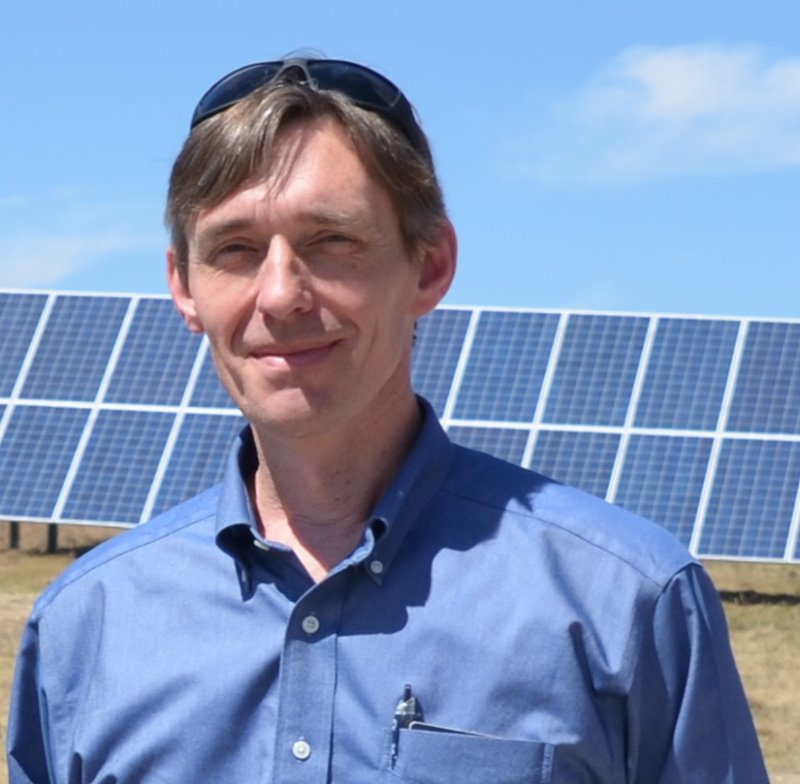Darrin Magee to lead WWU’s Institute for Energy Studies
BELLINGHAM, WA — Darrin Magee has been announced as the next director of Western Washington University’s (WWU) Institute for Energy Studies (IES). Magee officially started in his new role at WWU last month.
“We are delighted to have Darrin aboard. The IES plays a critical role in educating WWU innovators and changemakers to help develop our state’s – and our world’s – energy systems, and I cannot think of a more qualified person to lead it. Under his direction, I am confident that WWU will be well positioned as a destination institution for tomorrow’s energy leaders,” said WWU Provost Brad Johnson.
Prior to joining Western, Magee taught courses on energy, waste, and industrial impacts in East Asia as a professor of environmental studies at Hobart and William Smith Colleges in Geneva, New York. His scholarship focuses on China’s electrical systems, with a particular interest in renewables integration and large-scale hydropower.
Magee completed his doctorate in geography and master's degree in China Studies at the University of Washington and holds a bachelor's degrees in mathematics and French from Louisiana State University. Magee also formerly served as a fellow at Rocky Mountain Institute.
“I am excited to take on the directorship of the Institute for Energy Studies at WWU and look forward to helping prepare students for leadership roles in the energy transition. With leading institutions, state investments, and an enormous pool of innovators across industries, our home state of Washington can play a pivotal role in America’s energy transition. WWU’s Institute for Energy Studies has a fantastic and supportive platform to do great things, and I can’t wait to get started,” Magee said.
Magee succeeds Joel Swisher, who led the IES from November of 2014 until last fall.
The Institute for Energy Studies at WWU is a multi-college collaboration that offers interdisciplinary undergraduate degrees to address the science, technology, policy, business and economic aspects of energy systems.
From the outset, the IES has been driven by student interest and guided by the advice of leaders in the region’s energy industry, which make up its advisory board. IES programs are designed to meet the future workforce needs of Washington’s emerging clean energy economy, which emphasizes clean energy technology, energy efficiency, smart systems, environmental mitigation and entrepreneurial solutions.
To learn more about Western’s Institute for Energy Studies, visit energy.wwu.edu.
About Western Washington University
Western Washington University offers more than 200 academic programs on its main campus located in Bellingham, and at additional sites in Anacortes, Bremerton, Everett, Port Angeles and Poulsbo.
WWU is recognized nationally for its successes, from being named the top master’s-granting institution in the Pacific Northwest for 23 years in a row by U.S. News & World Report, which also named WWU as the of the best public schools in the West for veterans, to its recognition as one of the most sustainable, green campuses in the nation by the Sierra Club.
WWU is also known for being a top producer of prestigious National Oceanic and Atmospheric Administration (NOAA) Hollings Scholars, Fulbright Scholars, and Peace Corps volunteers, and nationally ranked for graduates who go on to earn research doctorates. The Chronicle of Higher Education’s Academic Workplace report named Western as one of the best colleges in the nation to work for, winning honors in two categories: teaching environment and tenure clarity and process. Western is proud to be a nationally recognized First Gen Forward institution.
Media Contacts
Jonathan Higgins
Director of WWU Communications
higgin5@wwu.edu
